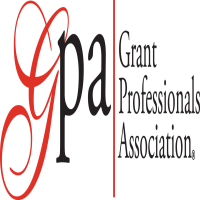GPA Chides Two-Week NOFO Application Window

You have to admire an association — particularly one that represents the grants sector — that sticks up for its members. And frankly, it has a valid argument; submitting quality applications cannot be rushed.
The Grant Professionals Association (GPA) recently issued a statement on its website, sharing it with other associations that represent grantees and nonprofits, stating that on July 15, it identified numerous notices of funding opportunities (NOFOs) from multiple federal agencies that had due date of July 29 – giving applicants only a 14-day window to apply. GPA contends that this rapid timeframe is not only out of compliance with federal regulations, but it “detrimental to the integrity and effectiveness of the grant application process.”
The association points out that this timeline is extremely narrow and fails to comply with uniform guidance language at §200.204(b) that states: “The federal agency should make all funding opportunities available for application for at least 60 calendar days.” While this provision notes that an agency may determine that an availability period of less than 60 days is sufficient for a particular funding opportunity, “no funding opportunity should be available for less than 30 calendar days unless the federal agency determines that exigent circumstances justify this.”
“These unacceptable delays in providing notice of funding opportunities for a variety of grant programs place an undue burden on organizations applying for these grants,” GPA explains. “It also places additional stress on federal grant application systems and processes, as grant applications submitted during this truncated window may lead to even more disruption to the federal grants system. This process is further exacerbated by the reduction in program staff available to apply standard review processes appropriately and allow sufficient time to review each application. We may see fewer proposals submitted overall, misleading others to believe that there is less community need — and subsequently no need for grant funding, though this would not be accurate.”
GPA notes that applying for grants is “rigorous and competitive, ensuring that federal funds are allocated to the most impactful programs.” The process requires thorough assessment of the merits of the proposal and the applicant's ability to successfully complete the proposed project, thereby maximizing the government's return on investment and ensuring taxpayers dollars are used responsibly.
“Providing sufficient lead time for grant seekers is paramount, as it directly impacts their ability to develop comprehensive, well-researched and strategically aligned applications,” GPA adds. “A rushed application process, stemming from truncated deadlines, often results in less-impactful proposals, which do not fully articulate innovative solutions, nor critical needs that potential grantees address. This, in turn, compromises the quality of programs funded and diminishes the overall impact of federal investments.”
GPA has shared this statement with other key associations such as the National Grants Management Association, Association of Fundraising Professionals, the Nonprofit Infrastructure Coalition and others. While some may argue that a shorter application timeframe may enable the granting agency to receive proposals from the most serious, best-organized applicants, we tend to agree with GPA’s stance that developing quality proposals does take time, and simply allowing two weeks to submit an application is much too soon.
Join us for our following Thompson Grants event:
2025 Federal Grants Forum: State and Local | Sept. 16-17, 2025 | Virtual Event



